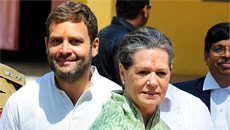KABUL — Afghanistan's first — and only — all-female symphony is trying to change attitudes in a deeply conservative country where many see music as immoral, especially for women.
The symphony's two conductors show how difficult that can be, but also how satisfying success is.
One of them, Negin Khpolwak, was supported by her father when she joined the Afghanistan National Institute of Music and then became part of its girls' orchestra, called Zohra. But the rest of her family was deeply against it. Her uncles cut off ties with her father.
"They told him he is not their brother anymore," said Khpolwak, now 20. "Even my grand-mother disowned my father."
Khwolpak had learned about the music institute at the orphanage in Kabul where she spent most of her life. Her father sent her to the orphanage because he was afraid for her safety in their home province of Kunar in eastern Afghanistan, an area where Taliban militants are active.
The institute is one of the only schools in Afghanistan where girls and boys share classrooms, and it draws its students from the ranks of orphanages and street children, giving them a chance at a new life. Khpolwak studied piano and drums before becoming the orchestra's conductor.
More than 30 girls aged 12 to 20 play in Zohra, which is named after a goddess of music in Persian literature. In January, the orchestra, which performs traditional Afghan and Western Classical music, had its first international tour, appearing at the World Economic Forum in Davos and four other cities in Switzerland and Germany.
"The formation of the orchestra is aimed at sending a positive message to the community, to send a positive message to the girls, to encourage families and girls to join the music scene of the country," said Ahmad Naser Sarmast, the institute's founder and director.
Sarmast has experienced firsthand the militants' hatred of music. In 2014, a Taliban suicide bomber blew himself up at a concert Sarmast was attending. He was wounded and a German man in the audience died.
The Zohra orchestra was created in 2014 when one of the institute's students, a girl named Meena, asked Sarmast if there could be a group where girls could play together. Sarmast leaped at the idea.
Since then, Meena has disappeared. Last year, the 7th grader told the school she had to attend her sister's wedding in her family's village in eastern Nangarhar province. She never returned, a sign of how tenuous people's situation is in a country where war rages, communications are poor and poverty is rife. Sarmast said the school has not been in contact with her, but he's hopeful she'll return to the school and Zohra.
The orchestra's other conductor, 18-year-old Zarifa Adiba, faced resistance from her family just as Khpolwak did.
When she joined the school in 2014, she only told her mother and step-father, not her four brothers and her uncles, because she knew they would disapprove. Her mother and step-father tried to tell them about the importance of music — without mentioning Adiba — but they weren't convinced.
"If my brothers and uncles had known about me learning or playing music, they 100 per cent would have stopped me because they had a very negative view toward music," Adiba said.
Her family's opposition to music was so intense she hesitated to join the orchestra's trip to Davos. But she ended up going, and as one of the conductors she was widely interviewed in the media there and appeared on TV.
When she returned, her uncles were the first to congratulate her. Two of her brothers are still not happy about her involvement with music but now she has the support of the rest of the family, she has more courage, and she said she is sure her brothers will eventually come around.
"I changed my family, now it is time for other girls to change their families because I am sure that slowly all Afghanistan will change," she said.


